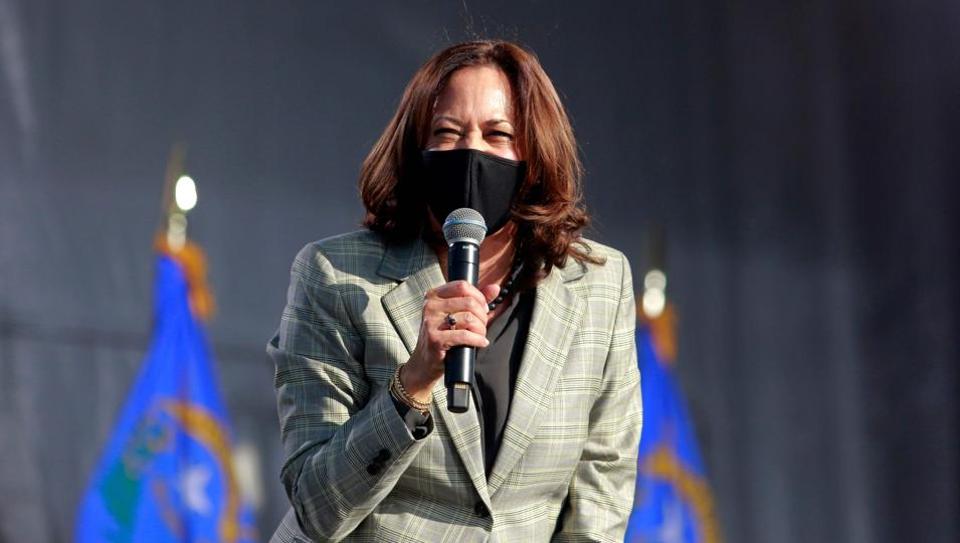prasad1
Active member
During his North Carolina political rally, President Donald Trump targeted Kamala Harris, saying, “She could never be the first woman vice president. . . That would be an insult to our country.” Now, Kamala Harris is the vice president-elect of the United States
President Donald Trump, Vice president Mike Pence, Republican Sen. David Perdue are among the top Republicans who have mispronounced now Vice president-elect Kamala Harris’ name. Senator Perdue in a rally while referring to Harris said, “KAH’-mah-lah? Kah-MAH’-lah? Kamala-mala-mala? I don’t know. Whatever.” The audience laughed.
But Kamala Devi Harris made history on Saturday becoming the first person of South Asian descent and the first woman of colour to become the vice president-elect of the United States.
Shyamala Gopalan, Kamala’s mother, was born in Chennai (Madras) and arrived in Berkeley in 1959, aged 19, after graduating from all-women’s Lady Irwin College in Delhi. Donald Harris, Kamala’s father, came to Berkeley to study Economics from the newly independent Jamaica in 1963. They met each other in protest marches against racial injustice and inequality, fell in love and married in 1963. On her website, Senator Harris has affirmed her dual roots: South Asian and African-American. In her virtual acceptance speech on August 19 as Democrat party’s vice-presidential nominee, Harris acknowledged the African-American women who fought for equality: “Mary Church Terrell, Mary McCleod Bethune, Fannie Lou Hamer and Dane Nash, Constance Baker Motley and Shirly Chisholm.” She added: “There’s another woman, whose name isn’t known, whose story isn’t shared… my mother — Shyamala Gopalan Harris.”

From dosas to racist and sexist remarks: The making of vice president-elect Kamala Harris
During his North Carolina political rally, President Donald Trump targeted Kamala Harris, saying, “She could never be the first woman vice president. . . That would be an insult to our country.” Now, Kamala Harris is the vice president-elect of the United States of America.
